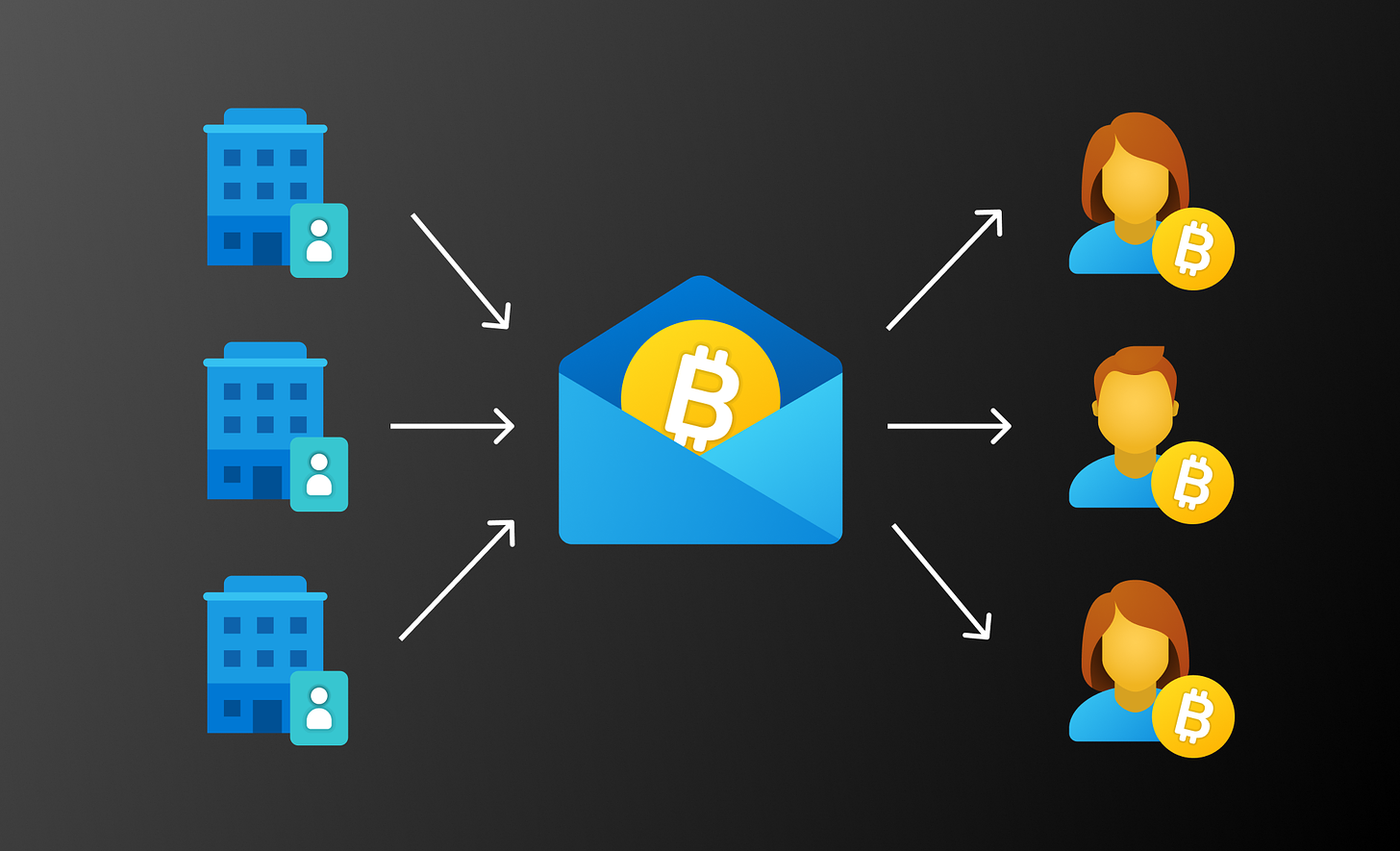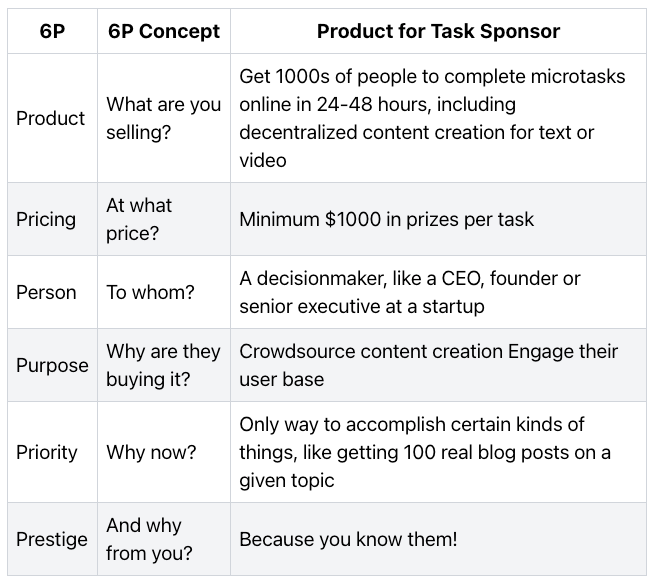Refer Task Sponsors
Find a friend willing to fund a task. We’ll give you $1000 in BTC if it goes live.
Note: This post was originally created at 1729.com which has evolved into thenetworkstate.com.
How do we build the cryptoeconomy? We'll need to use crypto to enable new types of transactions that generate value for the 100M+ crypto users spread across every country in the world. Some of the first big use cases are financial: crowdfunding, wire transfers, decentralized finance. But a growing use case is to enable people to sell their time in the cryptoeconomy via microtasks.
So today we’ll incentivize you to refer a friend who wants to fund a 1729 task.
1729 is a two-sided marketplace
First, what are we doing at a high level? Well, as per the figure above, you can think of 1729.com as a two-sided marketplace of task sponsors and task completers. A task sponsor creates and funds a task, while a task completer finishes a task and earns crypto. It can be more complicated than this, as the creator and funder can be distinct, but that's the high-level concept.
If you’re reading this, you are a task completer, while the entity drafting and funding this post is a task sponsor – in this case, 1729 itself!
Your goal is to find new sponsors for tasks
Your goal in this task is to find new sponsors for tasks beyond first party 1729-funded tasks. We're finding these ourselves, but if you can help us decentralize the process it becomes more scalable. It is in your interest to help us find new task sponsors for three reasons:
Direct economic interest. Most importantly, you receive $1000 if you source a task worth at least $1000 that ends up going to our users. That's the task at the bottom of this post.
Collective economic interest. Sourcing new task sponsors helps your friends earn more crypto via tasks if they are also subscribers to 1729. You also help the task sponsor get something done.
Collective ideological interest. You help bootstrap a digital economy at 1729 to replace legacy social networks that waste your time, and to achieve some of the larger goals outlined here.
Where do you start?
Now let’s say you are ready to get out there and find a task sponsor open to trying out a task at 1729. Who are you getting in touch with specifically and what are you selling them? The 6P’s provide a useful framework for firming this up.
Let’s apply it to the product for task sponsors:
Importantly, in a two-sided marketplace there are at least two products, the product for the task completers and that for the task sponsors. The table above is just for the task sponsors; it’s a good exercise to think about what it’d be like for the task completers.
Who do you start with?
In terms of specific ideas for tasks, you can check out the previous posts, particularly this one. In terms of specific people for tasks, here are some examples:
Ask a startup founder if they want to get users to create a video on their space
Ask a crypto founder who wants people to write tutorials about their asset
Get a VC who wants to get a list of interesting companies in a sector
These three demographics have budgets and business problems to solve, can move quickly as individuals without a lot of bureaucratic process, generally understand crypto, and are often open to commercial experiments. Other people may also fit this category.
Do not spam
Please note that while sales can sometimes get a bad rap, the best sales is consultative, and solves a problem for the user. That's why we're asking you to refer a friend or colleague – or yourself – as a task sponsor, rather than reaching out to cold prospects. Basically, do not spam people, because if you do, you will disqualify yourself from a reward.
Task: Earn $1000 in BTC
Find an institution or individual willing to sponsor a 1729 task
Your goal is to show a friend or colleague the 1729 site and a few tasks, and ask them whether they want to create a task to try it out. If they end up creating a task worth at least $1000, you will then receive $1000 in BTC. We don't have a set expiration date, but we will award up to five (5) prizes.
Once you have their consent, you should send an email to tasks@1729.com that cc’s them with an introduction. That email serves as a timestamp; if multiple people refer the same sponsor, the first one to send a sponsor-approved intro email to tasks@1729.com will receive the $1000, though we may give out honorary mention prizes at our discretion.
Note that if you want to help things along, you can follow the instructions in the previous post to create a draft task to show to your friend to get a sense of what can be done. This makes it more concrete; see Sequoia's content on the Templeton Compression.
If you've managed to find a task sponsor, please submit your email, your friend's email, an optional URL to your draft task, and any comments in the form below.






